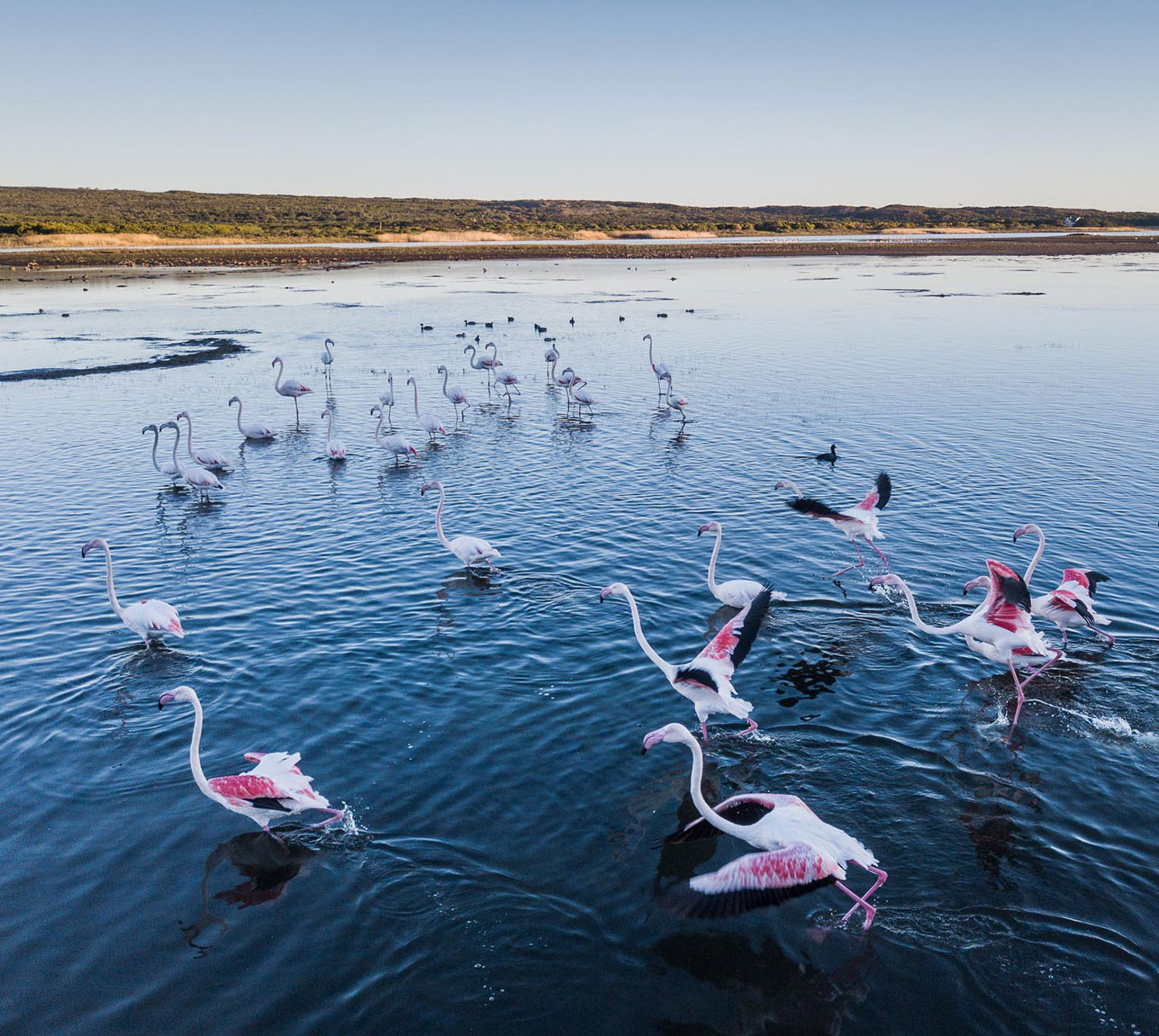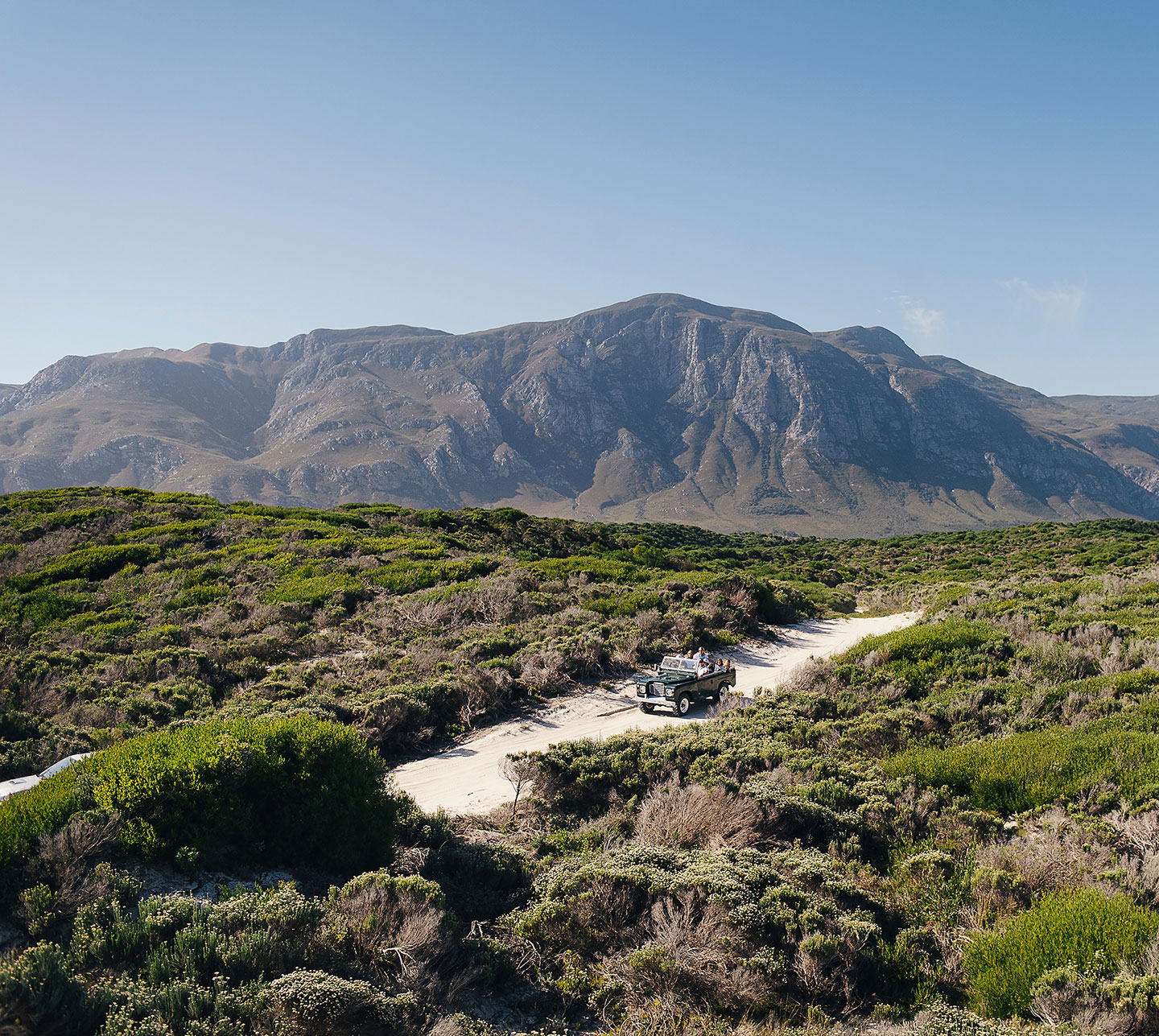
PLAYING YOUR PART
A mere two hours from Cape Town, Coot Club offers not just easy access to the most magnificent natural setting, but is at its heart a conservation initiative, with every guest directly contributing to the protection of this fragile wonderland.
Estuaries are one of nature’s most productive ecosystems, but the Klein River estuary is particularly important, with lime-rich soils producing a unique plant diversity, much of it critically endangered, and flowing out into Walker Bay – one of the world’s most important whale nurseries.
The variety of birdlife found here is also a rare phenomenon. The Cape Whale Coast Important Bird & Biodiversity Area (IBA), encompassing the estuary, supports more than 230 bird species. Birdlife SA – who completed the ornithological and botanical biodiversity assessment here in 2021 – has recommended that the peninsula, comprising 464-ha, enjoys the highest protection status.
CONSERVATION & COMMUNITY DRIVEN
No conservation initiative is sustainable without local community involvement – from providing employment to educational outreach programmes, active engagement and upliftment will always be a vital pillar of the Coot Club conservation plan.
Aside from a percentage of every guest stay assisting in protecting this small, entirely unique part of the world, we hope guests will also enjoy playing an active part of this initiative.
From checking the camera traps to download photos of the secretive visitors that roam here at night, to counting whales from the sand dunes overlooking Walker Bay; identifying the dawn chorus of birds or delicate spots of fynbos colour, the essence of Coot Club is its extraordinary natural offering, unique to the Overberg, and so close to Cape Town.

